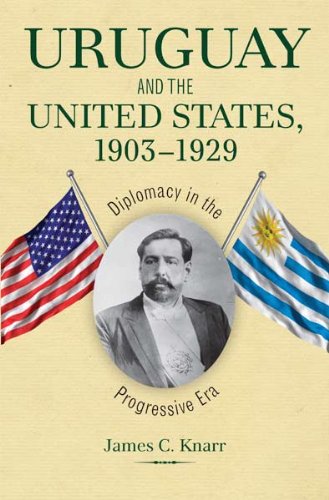

Most ebook files are in PDF format, so you can easily read them using various software such as Foxit Reader or directly on the Google Chrome browser.
Some ebook files are released by publishers in other formats such as .awz, .mobi, .epub, .fb2, etc. You may need to install specific software to read these formats on mobile/PC, such as Calibre.
Please read the tutorial at this link. https://ebooknice.com/page/post?id=faq
We offer FREE conversion to the popular formats you request; however, this may take some time. Therefore, right after payment, please email us, and we will try to provide the service as quickly as possible.
For some exceptional file formats or broken links (if any), please refrain from opening any disputes. Instead, email us first, and we will try to assist within a maximum of 6 hours.
EbookNice Team

Status:
Available4.3
35 reviewsDespite its fascinating history, the attention paid by North American historians to Uruguay, a nation nestled in the corner of South America between Argentina and Brazil, is scant when compared to that shown to its neighbors. A major portion of the Uruguayan story revolves around the figure of two-time president José Batlle y Ordóñez, who was the nation’s dominant political figure between 1903 and 1929. Historians have credited Batlle with creating the hemisphere’s first welfare state. Under his guidance, Uruguay passed laws in the area of workers’ rights, unemployment compensation, public education, public works, and voting expansion. Ever ambitious, Batlle sought to make Uruguay the world’s “model country.”
Uruguay and the United States, 1903–1929 is the first study to look at the political, social, and commercial relationship between Batlle’s Uruguay and the Progressive Era United States. Using government records from Montevideo and Washington, as well as newspapers, the personal papers of many of the key actors, and a variety of other sources, author James Knarr examines how this ideological and harmonious relationship developed between Batllistas in Uruguay and Progressives in the United States.
Through his analysis of diplomatic, commercial, and cultural bonds, Knarr comprehensively explores how Batlle’s liberal ideas, partially built on U.S. concepts, resulted in a relationship that brought rewards for both the United States and Uruguay. This work is a must read for historians of U.S. foreign relations and Latin America.